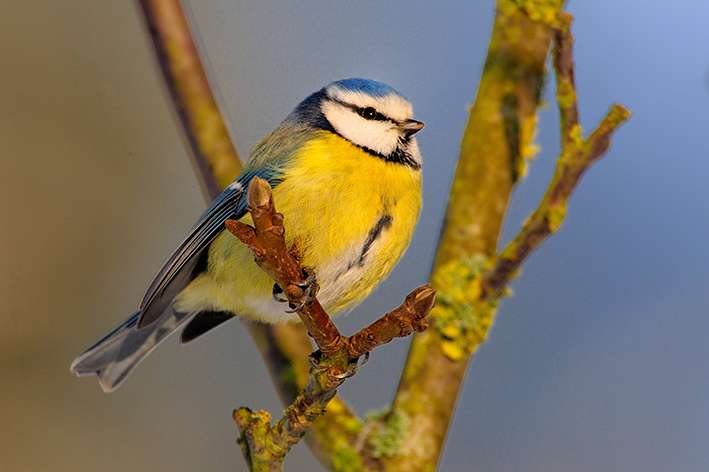Begging blue tit nestlings discriminate between the odour of familiar and unfamiliar peers

Nestling blue tits can discriminate between the smell of other nestlings and adapt their begging behaviour accordingly. This is the outcome of the latest study by Dr. Barbara Caspers and Dr. Peter Korsten from Bielefeld University to be published today on the 12th of May in the journal Functional Ecology. The behavioural biologist Caspers is currently studying odour discrimination in various animals.
In this subproject, Dr. Barbara Caspers and Dr. Peter Korsten from Bielefeld University and Marta Rossi from the University of Sussex in Brighton (Great Britain) examined the begging behaviour of seven-day-old blue tit nestlings from a population near the Dutch city of Groningen. 'Blue tit nestlings beg to obtain food from their parents and may have to compete with as many as 10 peers in the nest that are not all necessarily full siblings,' explains Dr. Peter Korsten. In earlier studies of other songbirds, it was found that this competition intensifies when nestlings are competing with non-kin. In such cases, nestlings beg even more intensively for food.
In the present study, the research team presented nestlings of blue tits with two different smells: familiar smells of siblings from their own nest, and unfamiliar smells of unrelated nestlings from another nest. In both experimental situations, the biologists then measured how much the nestlings begged. Results showed that blue tit nestlings beg longer and more intensely after being exposed to the smell of the unfamiliar nestlings compared to the familiar smell of their own nest mates. 'Up to now, we did not know how songbird nestlings were able to discriminate between the smell of close kin and less-related individuals when competing for food from their parents. Our study shows that they may well smell this difference,' says Caspers.
Science had long assumed that birds cannot smell at all. Behavioural researchers together with Dr. Barbara Caspers at Bielefeld University, have already been able to disprove this in earlier studies on zebra finches.

More information: Marta Rossi et al. Begging blue tit nestlings discriminate between the odour of familiar and unfamiliar conspecifics, Functional Ecology (2017). DOI: 10.1111/1365-2435.12886
Journal information: Functional Ecology
Provided by Bielefeld University

















